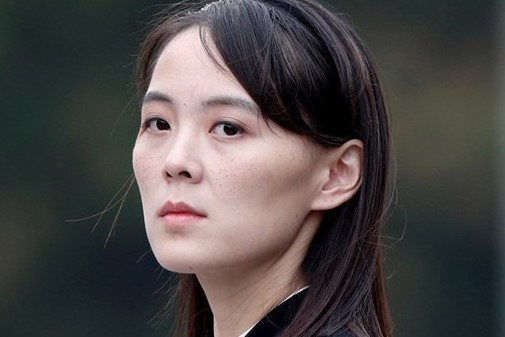Ji Seong-ho was born not far from the Hoeryong concentration camp,and grew up during the North Korean famine of the mid-1990s. His grandmother starved to death; his father was tortured to death. As a teenager, he had hopped onto a train with his mother and sister. They were stealing coal, in order to barter it for food. When he was jumping from one car to the next, Ji lost consciousness, owing to hunger. He fell between the cars onto the tracks, and lost a leg and a hand.
Eventually, he escaped North Korea — on homemade crutches. He made it to the South, where he became a Christian and started a human-rights groups.
In April of this year, Ji won election to South Korea’s National Assembly.
Defectors are beyond excited about his election. “He’s one of us,” says Park Yeonmi. What does Yeonmi mean? Ji Seong-ho is a street kid, a homeless kid, a wretch. Or rather, he was. “He never went to Kim Il-sung University,” says Yeonmi. That is the elite university in Pyongyang, North Korea’s capital. In fact, Ji “has never even been to Pyongyang.”
There is no freedom of movement within North Korea, Yeonmi explains. “You know what North Koreans dream about when they dream of traveling?” she continues. “They don’t dream about going to China or Europe and all that. They can’t even go to the next town without permission. But they may dream about going to Pyongyang.”
Yeonmi repeats: “Seong-ho is just one of us.” He is not bitter but instead grateful, Yeonmi observes. “He has such a big heart for his countrymen.” And now he is serving on the National Assembly of South Korea.
I have met Ji Seong-ho several times and have never seen him without a big smile on his face. He is effortlessly charismatic. “He projects an air of ebullience,” I once wrote. “I can’t help thinking he is happy to be alive.” In my view, his story should be made into a movie — perhaps culminating with Ji’s entrance into the National Assembly.
In 2018, Ji was a guest of President Trump for the State of the Union address. Sounding like presidents past, Trump said, “Seong-ho’s story is a testament to the yearning of every human soul to live in freedom.”
Until recently, Ji was never very interested in politics — politics in a partisan sense. He was neutral, above the fray. But he was pushed into politics by the grievances and indignities I listed above. He was especially moved by the deaths of the defector mother and her young son, in that Seoul apartment.
Despite the best efforts of the North Korean dictatorship, news gets into that country, via shortwave radio and other means. North Koreans will hear about Ji’s election, and have. The news is “shocking,” as Henry Song, the D.C.-based activist, emphasizes: one of them, elevated to the legislature of a free country. A free and Korean country.
[National Review]

